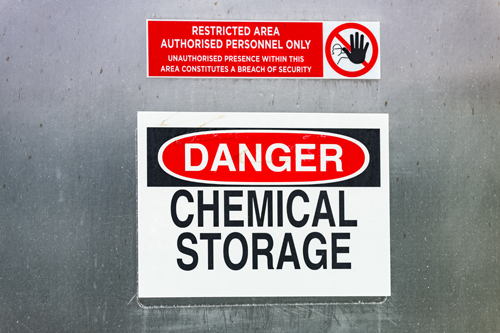
The BRS COPs Plastics Forum spotlights the need to manage plastic waste in environmentally sound ways.
How long is forever? More than a lifetime? The life cycle of plastic is measured in hundreds of years. Plastic bottles, for example, take up to 450 years to decompose in landfills. But even when it decomposes, plastic actually becomes more resilient in terms of dissemination, breaking down into microplastics and nanoplastics that get carried across the globe by air and sea, permeating our ecosystems and food supplies. We eat plastic, we breathe plastic; plastic particles have even been detected in placentas!
On the other hand, however a real and present danger plastic pollution may be, it doesn’t negate the fact that plastic has revolutionized the way we consume products and look after ourselves, by providing a cost-effective and durable material used for food containers, medical supplies and protective gear, among countless other applications. Two things can be true: plastic is very useful, and it is taking over the planet in the worst ways possible.
Plastic is Forever, so it’s time to get clever about managing it! The slogan of the latest campaign by the Secretariat of the Basel, Rotterdam and Stockholm Conventions (BRS Conventions) signals that the way out of the plastic pollution crisis is through the environmentally sound management of plastic waste. This is the principle that guides the Plastic Waste Amendments, currently the sole legally binding international agreement on plastics waste.
Having entered into effect in January 2021, the Plastic Waste Amendments ensure that all 189 Parties of the Basel Convention trade plastics waste only between consenting countries that have the capacity to manage it in environmentally sound ways. Moreover, the Plastic Waste Amendments are a steppingstone towards an even more ambitious goal: the development of an international legally binding instrument to end plastic pollution.
The relevant historic resolution was adopted last March in Nairobi, during the Fifth session of the United Nations Environment Assembly, and was welcomed by world leaders, NGOs and youth representatives. The BRS Conventions will have a key role in informing the Intergovernmental Negotiating Committee that aims to complete a draft of the agreement by the end of 2024. In the meantime, the Plastic Waste Amendments provide a singular guiding post for the environmental governance of plastic waste.
The Plastic is Forever campaign was launched in 2021 with the vernissage of a hybrid exhibition, showcasing the finalists of the Plastic Waste Partnership (PWP) photo competition. The competition invited people to highlight the role that plastic waste plays in their daily lives, and the results were quite staggering. The peak of the Plastic is Forever campaign is scheduled to coincide with the Plastics Forum, a three-day multistakeholder event, which takes place in Geneva from 8 to 10 June, during the meetings of the Conferences of the Parties to the BRS Conventions (BRS COPs).
Held face-to face for the first time in three years under the theme “Global Agreements for a Healthy Planet: Sound Management of Chemicals and Waste”, the BRS COPs have brought together over 1500 participants to address the impact of hazardous chemicals and wastes on human health and the environment.
The Plastics Forum offered an interactive platform focused on the urgent issue of plastics pollution. It featured more than 20 side events by actors, such as the United Nations Environment Programme, the Food and Agriculture Organization of the United Nations, the Government of Norway, the World Health Organization, the United Nations Development Programme, the European Investigation Agency, the International Pollutants Elimination Network, and many more. Most of the Plastics Forum’s side events are being streamed via a dedicated virtual platform, which also features a three-dimensional depiction of the Forum’s exhibition booths and stage area, as well as of the Centre International de Conférences Genève, the venue where the BRS COPs are being held.
The opening day of the Plastics Forum saw the launch of the Plastic is Forever social media challenge, an initiative that uses playfulness to involve the youth in the fight against plastic pollution. The challenge has two versions – plastic in the sea and plastic on mountains – and is available on Facebook and Instagram.
Running in parallel to the Plastics Forum side events was the Plastic is Forever hackathon, an event that bought together innovators from different backgrounds, challenging them to produce and pitch to the Forum audience prototype solutions that will help speed up R&D in the field of plastic waste management. The Plastic is Forever hackathon is organized in collaboration with the United Nations Institute for Training and Research, Open Geneva, and the University of Geneva.
On the last day of Plastics Forum, the PWP photo competition winners and the hackathon favourites were announced during a special ceremony. Afterwards, participants joined media and the public at Geneva’s Place des Nations, where they enjoyed an illuminations show on the façade of the United Nations Palais des Nations. This show marked phase two of the Plastic is Forever illuminations project. Phase one took place during the 2021 United Nations Climate Change Conference in November, when the Palais was illuminated in shades of the Basel Convention’s signature green colour. The initiative signaled the interlinkages between the three environmental planetary threats: climate change, biodiversity loss and pollution. Phase two consisted of animated projections providing a visual interpretation of the plastic waste crisis impacts.
Seven billion tonnes of plastic waste have been generated globally since the early 1950s, but less than 10 per cent of them has been recycled. Now the world is finally sensitized to the real potential of plastic. It’s time to use the tools provided to us by global governance and science to learn how to manage plastic, so that it ceases its gripping hold on us and our planet.




